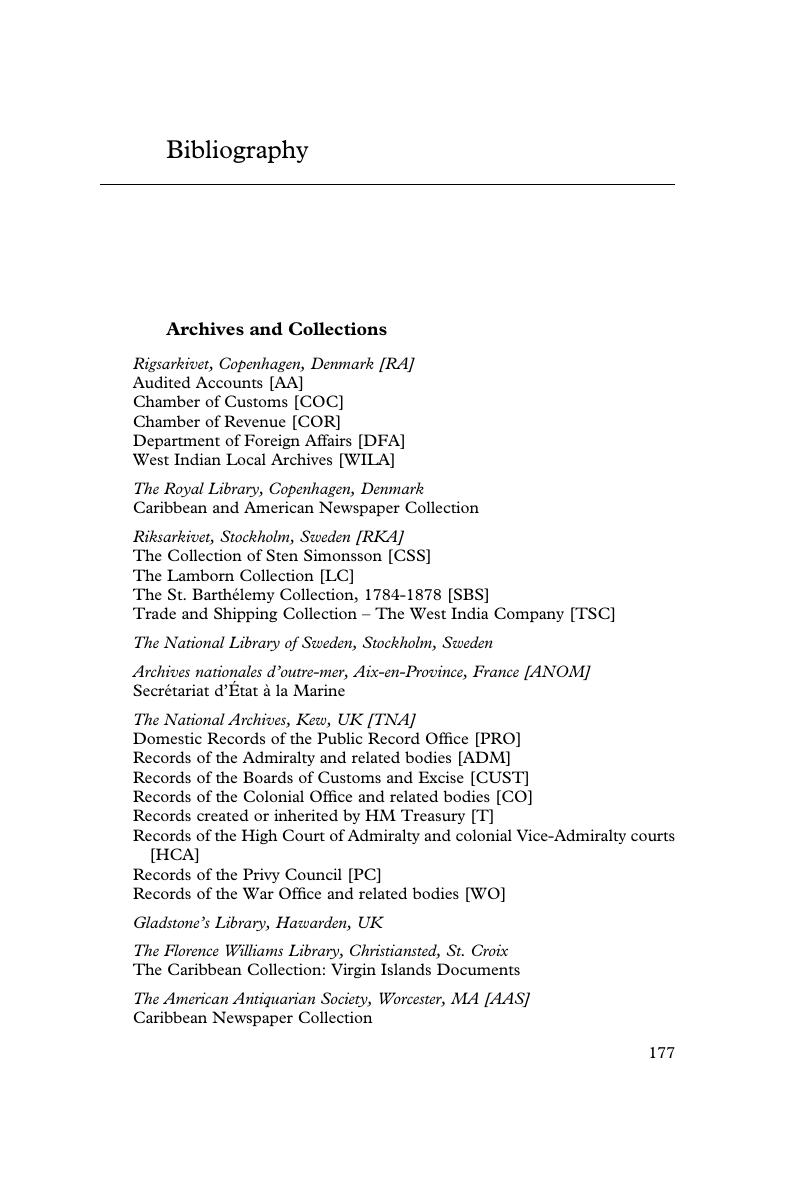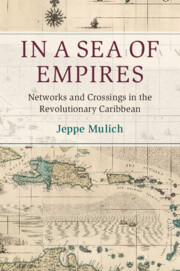Book contents
- In a Sea of Empires
- Cambridge Oceanic Histories
- In a Sea of Empires
- Copyright page
- Dedication
- Contents
- Figures
- Tables
- Acknowledgments
- 1 Introduction
- 2 Free Ports and Black Markets
- 3 Imperial Warfare, Colonial Violence
- 4 Prize Courts and Privateers
- 5 Slave Laws and Free Communities
- 6 Abolition and the Illegal Slave Trade
- Conclusion
- Bibliography
- Index
- References
Bibliography
Published online by Cambridge University Press: 24 June 2020
- In a Sea of Empires
- Cambridge Oceanic Histories
- In a Sea of Empires
- Copyright page
- Dedication
- Contents
- Figures
- Tables
- Acknowledgments
- 1 Introduction
- 2 Free Ports and Black Markets
- 3 Imperial Warfare, Colonial Violence
- 4 Prize Courts and Privateers
- 5 Slave Laws and Free Communities
- 6 Abolition and the Illegal Slave Trade
- Conclusion
- Bibliography
- Index
- References
Summary

- Type
- Chapter
- Information
- In a Sea of EmpiresNetworks and Crossings in the Revolutionary Caribbean, pp. 177 - 199Publisher: Cambridge University PressPrint publication year: 2020



